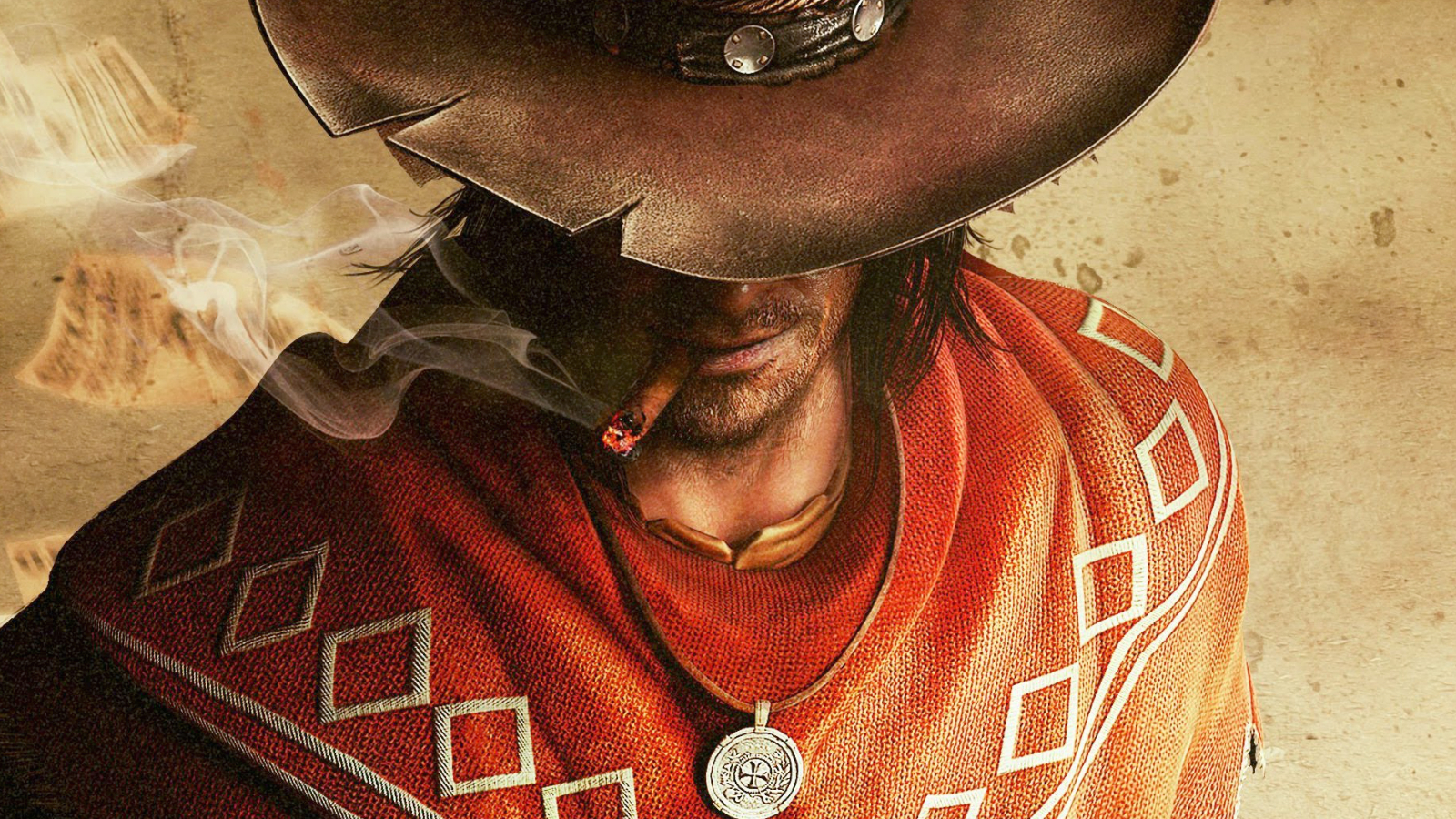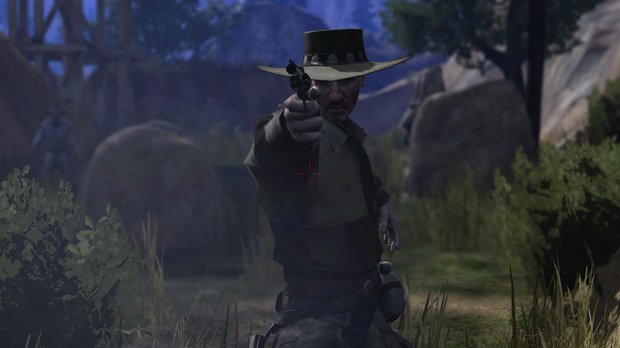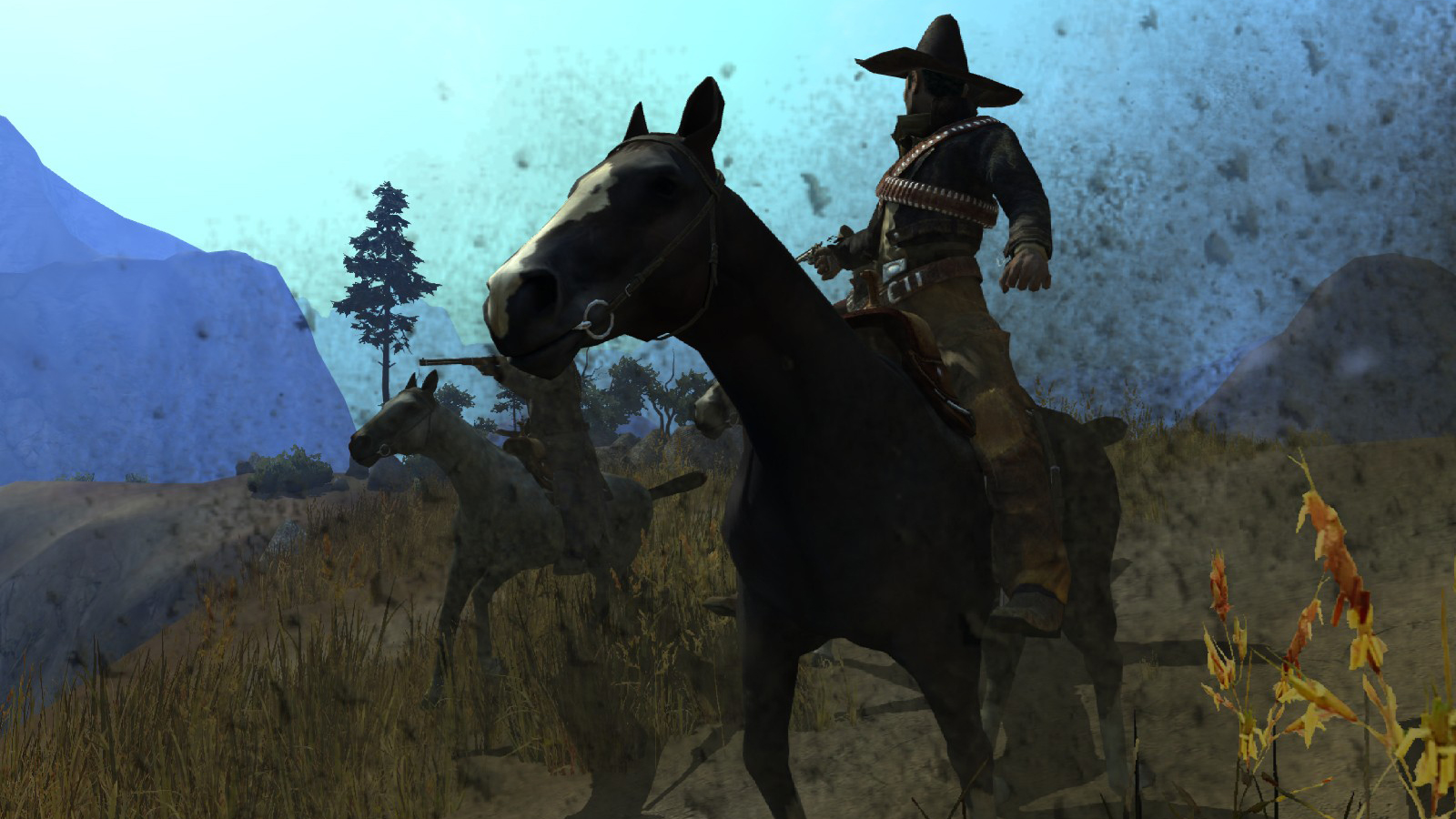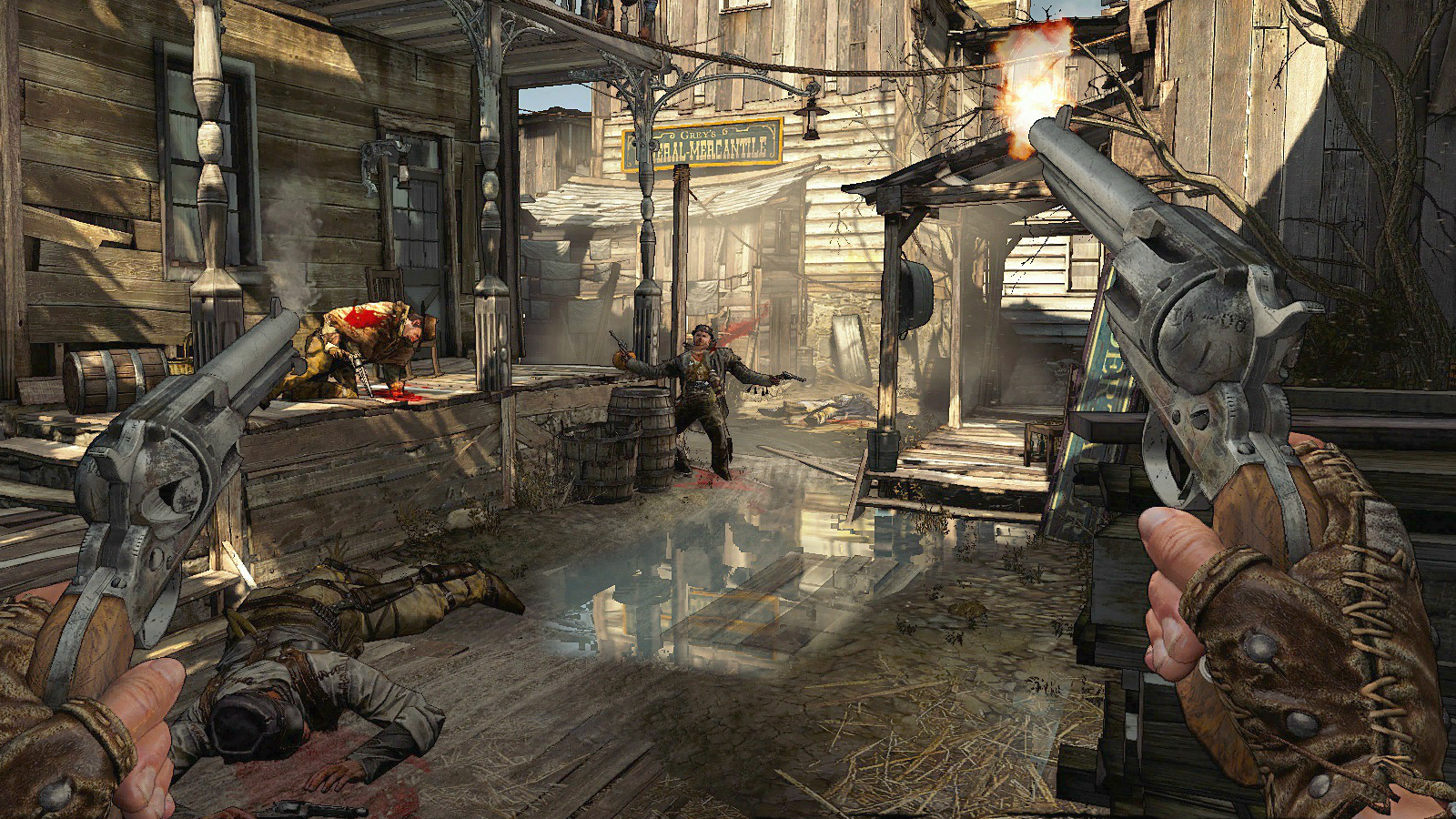
If I were a plaque-maker, asked to carve a mahogony block to display above the entrances of the Techland offices, I would chisel the motto “occasionally competent”. Call of Juarez was its first shaky step on the road to this ambitiously intermittent commitment to quality. It decided on two characters who embodied the concepts that it continues to bring to its games to this day. Billy is “frustratingly misjudged”, and Ray is “unexpectedly brilliant”. And it pulled off the whole 'psychologically damaged cowboy' thing years before Red Dead Redemption made us all swoon.

Call of Juarez is most fondly remembered for bringing us the character of Reverend Ray. A hard-bitten brimstone preacher with an ignoble past, who delivers sermons to a tiny flock, and has to deal with open rebellion for his congregation, even at the pulpit. He’s sworn himself away from the path of murder, and it’s a neat touch when you pick up his Bible, that it’s inserted into one of your equippable weapons slots.
This leads to the single best dual-wielding scenario in gaming history: a six-shot revolver in the left hand, and a Bible in the right. Shooting people in the hat (and I’m pleased to confirm that the hats do fly off) is one thing, but pull the Bible trigger, and Ray reads some of the less frivolous verses from the more violent and psychopathic chunks of the Bible. It’s not just for effect – some of your enemies will cower at the wrath of the Lord as you bear down on them, preaching hellfire and delivering His judgement on Earth. Ray’s a rare videogame protagonist. Techland isn’t trying to make you like him – he’s a trauma-damaged asshole who’s sacrificed his compassion to pious fury and regret. That it was able to get us rooting for him is very impressive.

Then, there’s Billy. The precise opposite of Ray in terms of attempts to get us to like him. He’s the victim of lifelong prejudice, and he even has a tragic Skywalker-bereavement in the opening chapter. But because he’s a stealthy character in a game that has terrible stealth, and an athlete in a game that makes you feel like a graceless boulder, you have no sympathy for Billy.
While Ray is the sharp-shooter with a scene-clearing ability to slow time and score six headshots, Billy is a platformer. Mirror’s Edge aside, first-person platforming isn’t a highly-regarded genre, and Billy’s hobbled ledge-leaping does nothing to change that. He has a whip that can be attached onto branches – but only in a way that’s so erratic you’ll find yourself dangling off a ledge, looking at your sad legs tapering away into a chasm. Generous checkpointing is Billy’s saving grace.

You control Billy and Ray over alternate chapters, and while Billy is the less enjoyable character, he does break up the relentless trauma of Ray’s angry, misdirected righteousness. In the first half hour, Billy finds himself getting some unexpected (and quickly curtailed) gratuities from a sex worker, and if that scene had happened with Ray, there’d have been a self-hating monologue that would have put Niko Bellic to shame. So, yeah – it’s a rollercoaster ride of fussy platforming balls and brimstone-fuelled bullet-time – but while the game has dated badly, it’s still held together with an overlapping dual story that’s unusually well-told.
Click here for more excellent Official Xbox Magazine articles.
Sign up to the GamesRadar+ Newsletter
Weekly digests, tales from the communities you love, and more
The official source for everything Xbox One, Xbox 360, and Xbox Series X. We're also a magazine, covering all things Xbox in the UK and the US. Originally established in 2001, the magazine was discontinued in April 2020.



